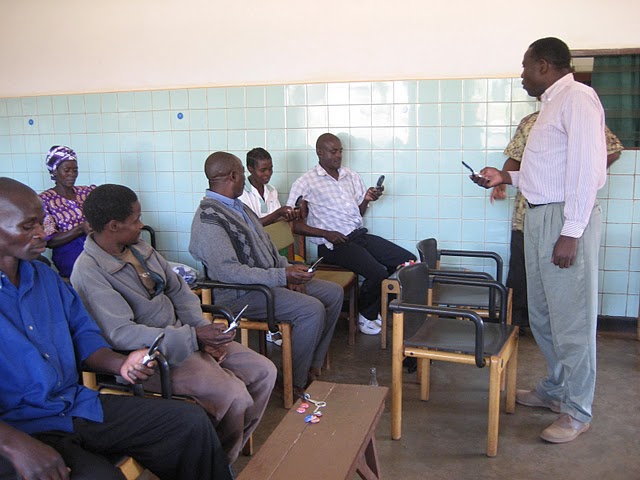Lawrence Haddad's recent column in the Guardian (23rd June) got me thinking about ways to use mobile to enable communities to hold agencies, whether governmental or not, to account for the aid they provide. This is a critical element of good development and aid work. As Haddad says;
Helping communities report on whether the aid reached them is a good contribution to fixing the broken feedback loop in international development and to reducing waste and corruption. But asking these communities if the aid was working – and how they define "success" – would be even better.
I can easily imagine using FrontlineSMS to administer a complaints and response mechanism using SMS; the agency could publicise a number, and complaints could come in from community members by text, even from a village phone provided as a livelihoods element of the programme. The agency could auto-reply to the message with thanks; and where appropriate, respond or request more information by text as well. The list of numbers they collect would enable them to send out text updates on their progress, and perhaps announce meetings and focus group discussions.
Enter PatientView - and complex data management using SMS
But an exciting development from our colleagues over at FrontlineSMS:Medic might allow agencies to take SMS even further in their programmes. PatientView, which is now out in beta, represents a huge step forward for complex data management using SMS. The plugin, which runs on a souped-up version of the core FrontlineSMS platform, can turn a computer and a set of Java-enabled phones into a patient records management system - one which doesn't need an internet connection.
So what could this mean for humanitarian and development programmes? Well, below I'll set out some ideas for using a PatientView-like implementation of FrontlineSMS for a cash transfer programme - a key tool in the humanitarian toolbox. A good set of guidelines for this type of intervention is available from the International Federation of Red Cross and Red Crescent Societies - below I'll imagine how you might use SMS as the medium through which the large amounts of data involved in a cash programme might be passed back and forth.
Registration, markets and monitoring
Imagine you're setting up a cash transfer programme. Instead of paperwork, which as any veteran of such a project will tell you is an unavoidable part of the process, you would create a new record for each new recipient of cash. Their record would capture all the usual information about them - basic data such as name, number of dependants, gender, and date of birth; up to more detailed information about any special needs, their official identity information, even a photo. (Coming soon: MMS!) Attached to their record could be a separate category (based on the staff records in PatientView) for the programme information, or alternatively, for the staff member administering the cash transfers in that village - perhaps both. Whatever works for your programme structure.
Immediately post-emergency, when blanket distributions are taking place, you might start with relatively little information about the people you're supporting - perhaps just data about the cash given to them. As the programme progresses, you might build up additional information them as more detailed assessment and targeting teams swing into action. When you need to manipulate the data, you can sort beneficiaries by any of their characteristics.
Even more exciting, as the project timeline rolls on and you need to maintain up-to-date market monitoring, you could imagine enabling community members to update a live database, much as the FAO did in Banda Aceh. They could also query the database themselves, to find out where to sell or buy goods at the best prices.
Don't panic, it's easier than it sounds to set up
If this all sounds a bit technical, don't worry - users have been setting up and running with FrontlineSMS in the field for many years, and we have a team of developers and experienced users standing by to provide support. In the field, FrontlineSMS:Medic, piloting in Malawi, found that community health workers needed six days' training over six weeks to be trained to text data in to the hospital - from a starting position in which many weren't familiar with using mobile phones at all. Data can be exported from FrontlineSMS as a .csv file, which can be imported into Excel and many other programmes and databases. And in terms of kit, all you need are a computer, a GSM modem, and Java-enabled handsets for your field staff.
FrontlineSMS:Medic have demonstrated immense cost and time savings in their programming, and there's the added benefit that data entry only has to be done once - no transcribing from paper to digital. The system is forgiving of typos, offering natural language suggestions for staff at base to map incoming SMS to records where no direct correlation is found. And ultimately, you can imagine a future in which FrontlineSMS:Credit, which plans to make all the major banking functions available through SMS, could enable you to carry out the actual cash transfers by text as well.
We'd love to hear whether you think these ideas are worth pursuing - join the conversation below, on Twitter, or on our Facebook page.


